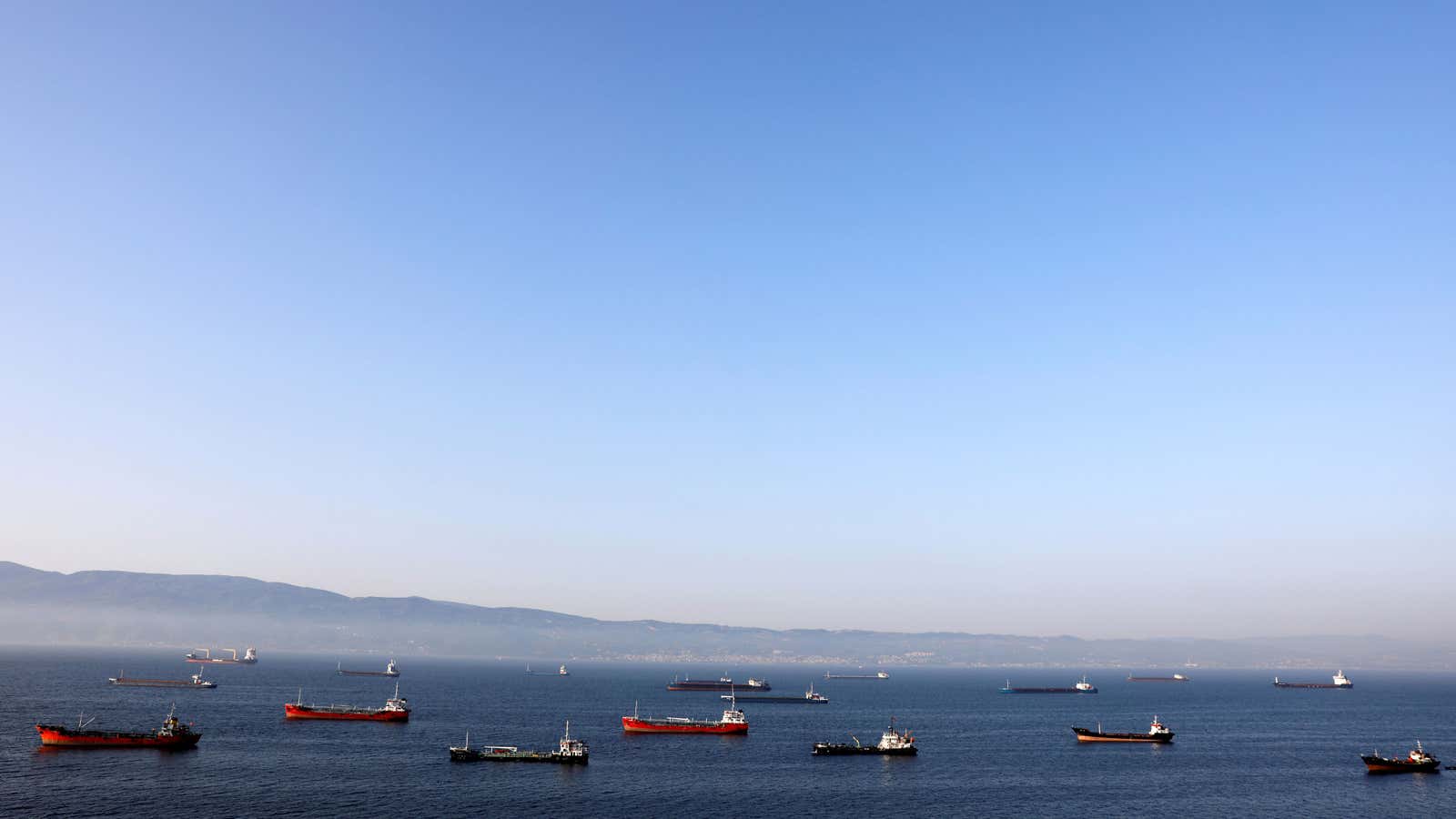As the US reimposes sanctions on Iran, efforts to get around the restrictions are also coming into play. Among them are Iran’s so-called ghost ships—oil tankers that have turned off their satellite-tracking transponders to hide their destinations.
Iranian supertankers have reportedly been disappearing from global tracking systems since at least September, and by October all of its oil-carrying vessels had gone dark, according to AFP citing data from TankerTrackers.com. It’s a replay of maneuvers, like changing vessels’ flags of registration, used when US sanctions were in place during the Obama administration. However, the cat-and-mouse game may be more difficult for Tehran now, as big data and satellite-tracking technology has improved since then (paywall).
And this time, the weight of sanctions, intended to blunt Iran’s nuclear program and counter its influence in the Middle East, is designed to be heavier. US president Donald Trump has reactivated restrictions that were lifted by his predecessor, in addition to ratcheting up the pressure by adding 300 new designations that include Iran’s insurance, shipping, banking, and oil sectors. In May, Trump said his administration was pulling out of the 2015 nuclear agreement, though other parties—including Britain, France, Germany, China, and Russia—have said they will stay with the agreement.
Iranian president Hassan Rouhani said the country will defy US sanctions and continue to sell oil. The EU is trying to help him do it: French and German leaders have sought to shield EU companies (paywall) from any US backlash while developing a payment channel that would skirt the American financial sanctions. Even so, there are signs that European companies, concerned about getting locked out of the US banking system, have yielded to Trump’s wishes and stopped doing business with Iran.
As the US tries to choke off Iran’s economy, eight unnamed major importers have been granted exemptions by the US to keep ties with the Islamic republic for now. South Korea said it had been given a waver for some of the restrictions, according to Reuters, and China and India have also sought exemptions for doing business with Iran, which has the world’s fourth-largest oil reserves.
The wavers, which reduce the risk of a supply shortage, could be part of the reason oil prices have fallen recently, despite the start of fresh sanctions. Saudi Arabia has indicated it will pump enough additional oil to keep supplies topped up and prices stable.
